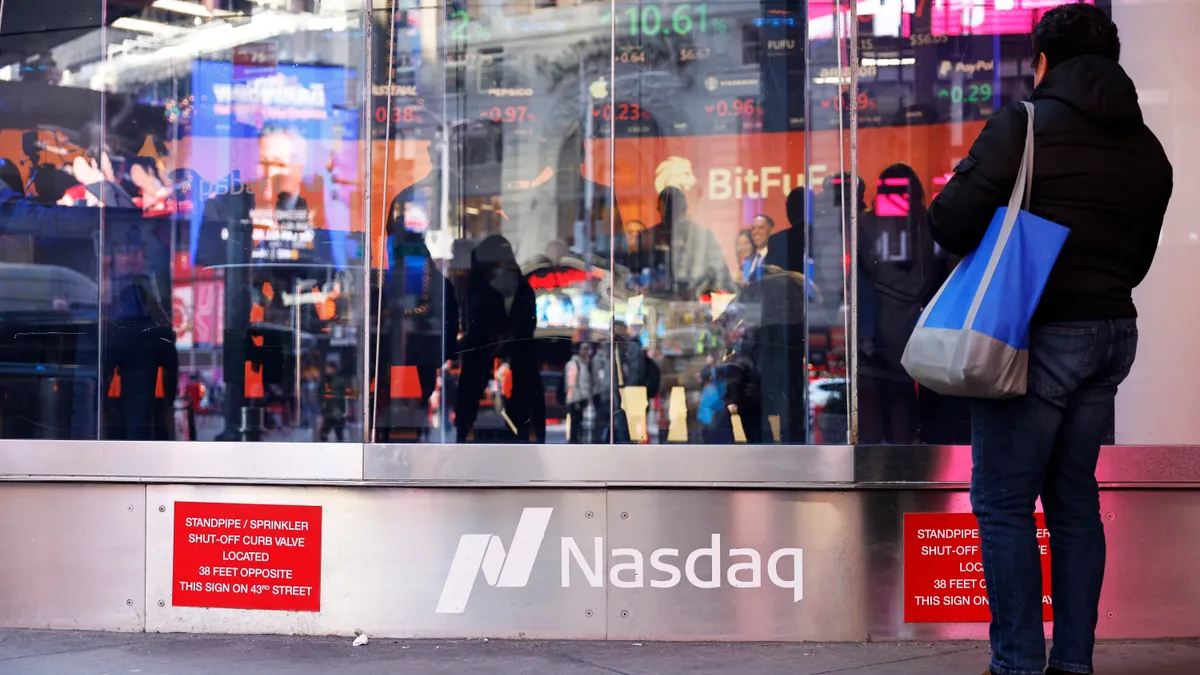Dive Brief:
- Two biotechnology startups on Friday revealed plans to launch initial public offerings, extending a step-up in IPO activity among privately held drug companies.
- Sionna Therapeutics is working on therapies for cystic fibrosis, several of which are in early-stage testing. Odyssey Therapeutics aims to tap Wall Street to develop targeted drugs for immune diseases, the most advanced of which could begin a Phase 2 trial in ulcerative colitis this quarter.
- Sionna and Odyssey are the fourth and fifth biotech companies to file for IPOs since late December. Over the last three years, however, bursts of IPO activity have typically been followed by longer dry spells.
Dive Insight:
For biotechs, IPO success has been hard to come by the past three years. Since 2022, only about two dozen drug startups have made it to Wall Street each year. Most now trade well below their initial value, BioPharma Dive data show.
Partially as a result, some companies are choosing to sell themselves instead of going public. More than half of the biotech acquisitions worth at least $50 million upfront last year involved privately held companies, according to BioPharma Dive data.
Others are staying private for longer and raising more funding. That’s created a glut of mature, well-funded biotechs that many in the industry expect will eventually try for IPOs when the time is right. “We think it’s reasonable to expect more IPOs — it’s just a question of valuation and market appetite,” wrote Jefferies analyst Michael Yee, in a research note last week.
A handful are prepared to try now. Since late December, China-based cancer drug developer Ascentage Pharma, obesity-focused Metsera and Maze Therapeutics, a maker of genetic disease medicines, have all filed IPO paperwork. Joining them Friday were Sionna and Odyssey, which collectively have raised more than $800 million in venture funding since their inception.
Sionna is working on a medicines it claims can challenge Vertex Pharmaceuticals’ dominant cystic fibrosis business. The company designed its therapies to stabilize a tough-to-drug region of the CFTR protein that’s defective in cystic fibrosis, an approach it thinks could restore function better than Vertex’s medicines. It also acquired a trio of prospects from AbbVie for use in multi-drug regimens.
In its IPO prospectus, Sionna noted how at least two-thirds of patients on Vertex’s top-selling drug, Trikafta, don’t have normal CFTR function. Patients treated with Trikafta or other cystic fibrosis therapies can also still have declining lung function, or may cut dosing due to side effects. The company intends to pick one of its “stabilizers” to test alongside Trikafta and, separately, sift through its portfolio to find the best two-drug combination to bring into late-stage testing. Phase 1 results for two of its prospects are expected in the first half of the year.
Odyssey is run by serial entrepreneur Gary Glick, who previously formed and sold multiple drug startups. The biotech uses advanced computing to develop precision drugs for immune conditions and has publicly revealed six programs for conditions including eczema, asthma and lupus. Its lead program is a small molecule that blocks the signaling protein RIPK2, which is implicated in the onset of inflammatory bowel disease as well as resistance to other treatment. Phase 2 study results are expected in 2026.
Odyssey has research partnerships with Pfizer, Johnson & Johnson and AI drug discovery startup Terray Therapeutics.
Should they both go public, Sionna and Odyssey would trade on the Nasdaq stock exchange under the symbols "SION" and "ODTX," respectively.















